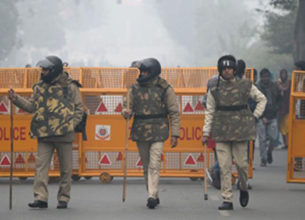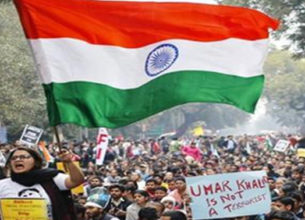NO AUTOMATIC CONVICTION FOR ABETMENT OF SUICIDE, SAYS SC
06, Jan 2020

Prelims level : Policies
Mains level : GS-II Indian Constitution- Historical Underpinnings, Evolution, Features, Amendments, significant Provisions and Basic Structure.
Why in News?
- The Supreme Court recently held in a judgment that a person accused of dowry harassment cannot be automatically convicted for abetment of suicide.
About the News:
- Merely because an accused is found guilty of an offence punishable under Section 498A of the IPC (Husband or relative of husband of a woman subjecting her to cruelty), the accused cannot be automatically held guilty for the offence punishable under Section 306 (abetment of suicide) of the IPC by employing the presumption under Section 113A of the Evidence Act.
- Unless the prosecution establishes that some act or illegal omission by the accused has driven the deceased to commit the suicide, the conviction under Section 306 would not be tenable.
What does Section 498A of IPC Say?
- Husband or relative of husband of a woman subjecting her to cruelty — Whoever, being the husband or the relative of the husband of a woman, subjects such woman to cruelty shall be punished with imprisonment for a term which may extend to three years and shall also be liable to fine.
- For the purposes of this section, “cruelty” means—
- Any willful conduct which is of such a nature as is likely to drive the woman to commit suicide or to cause grave injury or danger to life, limb or health (whether mental or physical) of the woman; or
- Harassment of the woman where such harassment is with a view to coercing her or any person related to her to meet any unlawful demand for any property or valuable security or is on account of failure by her or any person related to her to meet such demand.
What does Section 306 of IPC say?
- Abetment of suicide is an offence under section 306 of the Indian penal code, 1860.
- According to the 306 section of the Indian Penal Code, a person abetting the suicide of another person shall be punished with imprisonment up to 10 years and shall also be liable to fine.
- Abetting a suicide is a non-bailable charge.
- A person is guilty of abetment when:
-
1. He instigates someone to commit suicide (or)
2. He is part of a conspiracy to make a person commit suicide (or)
3. He intentionally helps the victim to commit suicide by doing an act or by not doing something that he was bound to do.
What does Section 113A of IPC say?
- Presumption as to abetment of suicide by a married woman — When the question is whether the commission of suicide by a woman had been abetted by her husband or any relative of her husband and it is shown that she had committed suicide within a period of seven years from the date of her marriage and that her husband or such relative of her husband had subjected her to cruelty, the court may presume, having regard to all the other circumstances of the case, that such suicide had been abetted by her husband or by such relative of her husband.
- For the purposes of this section, “cruelty” shall have the same meaning as in Section 498-A of the Indian Penal Code (45 of 1860).










